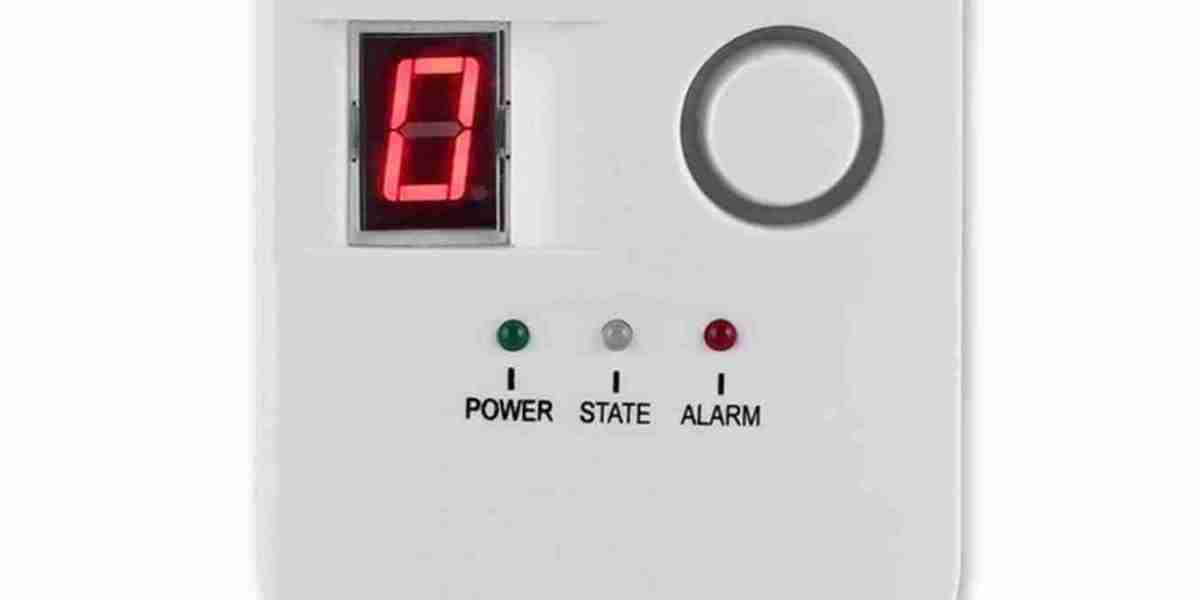Understanding the Risks of Gas Leaks
Gas leaks in homes primarily involve natural gas, propane, or carbon monoxide. Natural gas and propane are commonly used for heating, cooking, and powering various household appliances. While carbon monoxide, known as the "silent killer," is an odorless, colorless gas produced by burning fuels such as gas, oil, wood, or coal.
The risks associated with gas leaks are multifaceted. Inhaling natural gas or propane can lead to symptoms such as nausea, dizziness, fatigue, and even asphyxiation in severe cases. Moreover, both natural gas and propane are highly flammable, posing a significant risk of fire or explosion if a leak goes undetected. On the other hand, carbon monoxide poisoning can be fatal, as it interferes with the body's ability to transport oxygen, leading to symptoms such as headaches, dizziness, confusion, and eventually unconsciousness or death.
The Importance of Gas Leak Detectors
Gas leak detectors are devices designed to monitor the air for the presence of harmful gases, alerting homeowners to potential leaks before they escalate into emergencies. These detectors are equipped with sensors that can detect specific gases, such as natural gas, propane, or carbon monoxide, depending on the model.
One of the most significant advantages of gas leak detectors is their ability to provide early warnings, allowing residents to take prompt action and mitigate risks before they escalate. By detecting even small traces of gas in the air, these devices offer peace of mind and enhance safety within the home environment.
Types of Gas Leak Detectors
Gas leak detectors come in various types, each catering to specific needs and preferences. The most common types include:
Plug-In Detectors: These detectors are plugged directly into electrical outlets and continuously monitor the surrounding air for gas leaks. They often feature audible alarms and may include visual indicators to signal the presence of gas.
Battery-Powered Detectors: Battery-powered detectors offer flexibility in placement, as they do not require electrical outlets. They are ideal for areas without easy access to power sources and are often equipped with long-lasting batteries for extended use.
Smart Detectors: Smart gas leak detectors connect to a home's Wi-Fi network, allowing users to receive real-time alerts and notifications on their smartphones or other connected devices. These detectors may also offer additional features such as remote monitoring, self-testing, and integration with home automation systems.
Combination Detectors: Some detectors are designed to detect multiple gases, such as natural gas, propane, and carbon monoxide, providing comprehensive protection against various threats. These combination detectors are convenient for homeowners who want all-in-one solutions for gas leak detection.
Installation and Maintenance
Installing a gas leak detector is a straightforward process that typically involves placing the device in areas prone to gas leaks, such as kitchens, utility rooms, or near gas-powered appliances. It's essential to follow the manufacturer's instructions and recommendations for optimal placement and performance.
Regular maintenance is crucial to ensure the effectiveness of gas leak detectors. This includes periodic testing of the device's functionality, checking battery levels (if applicable), and replacing expired sensors or batteries as needed. Additionally, homeowners should familiarize themselves with the sounds and indicators used by their detectors to distinguish between normal operation and alarm conditions.
Conclusion
Gas leaks pose a significant risk to the safety and well-being of homeowners and their families. However, with the installation of gas leak detectors, these risks can be minimized, providing early warnings and allowing for timely intervention. Whether it's detecting natural gas, propane, or carbon monoxide, gas leak detectors offer peace of mind and assurance, making them a vital addition to every household. By investing in these proactive safety measures, homeowners can protect their loved ones and property from the potential dangers of gas leaks, ensuring a secure and comfortable living environment for years to come.








